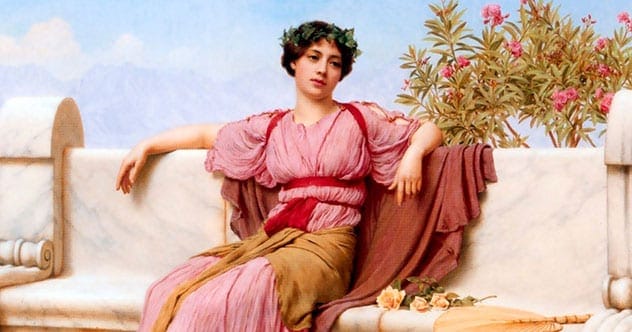Human history hasn’t always been fair to women. Even when they broke free from society’s constraints, they often faced scorn. Cleopatra, a powerful queen, was demonized by her Roman rivals as an Eastern enchantress. Yet, some women achieved greatness and earned praise both in their time and today.
Here are ten remarkable women from antiquity whose stories deserve to be told.
The First Poet
Cuneiform, one of the earliest writing forms, emerged in Mesopotamia around 3100 BC. Countless clay tablets with cuneiform inscriptions hold some of the most impressive ancient texts. Among these, Enheduanna stands out as the earliest known author. A princess, priestess, and poet, she lived around 2300 BC.
Enheduanna was the daughter of Sargon of Akkad, who appointed her as the chief priestess of Ur. There, she composed the poems that secured her fame for centuries.
Most of her poems were hymns to Mesopotamian gods like Inanna, but some reflected her personal struggles. After her father’s death, she was expelled from her temple.
“He has turned that temple, whose attractions were inexhaustible, whose beauty was endless, into a destroyed temple. While he entered before me as if he was a partner, really he approached out of envy.”
She later regained her position, and her poems were copied and recited for as long as Mesopotamian cities stood.
The First Chemist
Long before chemistry became a recognized science, people used techniques similar to those in modern labs. Distilling chemicals with heat and solvents was common 3000 years ago in Mesopotamia, thanks to Taputti, the first named chemist in history.
Taputti is mentioned on a clay tablet as a perfumer and overseer in a royal palace. She used a still to extract essences from plants, marking the earliest known mention of this crucial scientific tool.
Taputti had an assistant named –ninu, suggesting that she wasn’t the only woman in the field. Despite the tablet’s damage, it’s clear that women played a role in early chemistry.
The First Portraitist
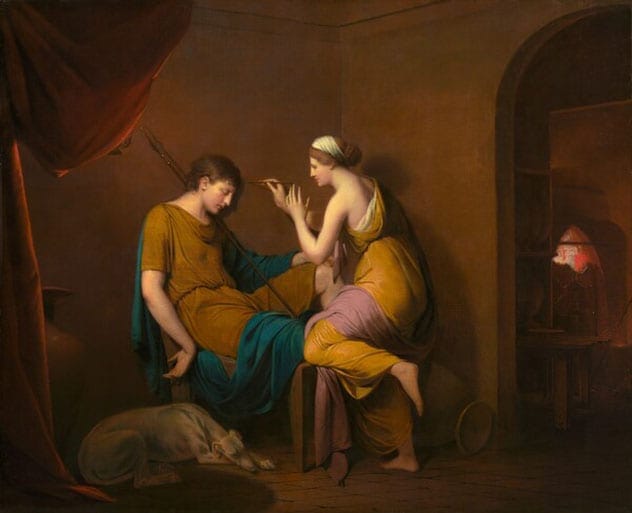
According to Pliny the Elder, the invention of portraiture is credited to a woman, though some dispute this. Known as Dibutades or Core, she created the first portrait when her lover was about to leave on a long sea voyage.
Saddened by the prospect of their separation, she traced his shadow on the wall with charcoal, capturing his likeness so she could always see his face.
Dibutades’ father, a potter, was inspired by her creativity and modeled the portrait in clay. By using different clay colors, he made tiles that preserved people’s features after death.
Dibutades was celebrated for her contribution to art history, and many Enlightenment artists paid tribute to her with their portraits.
The First Alchemist
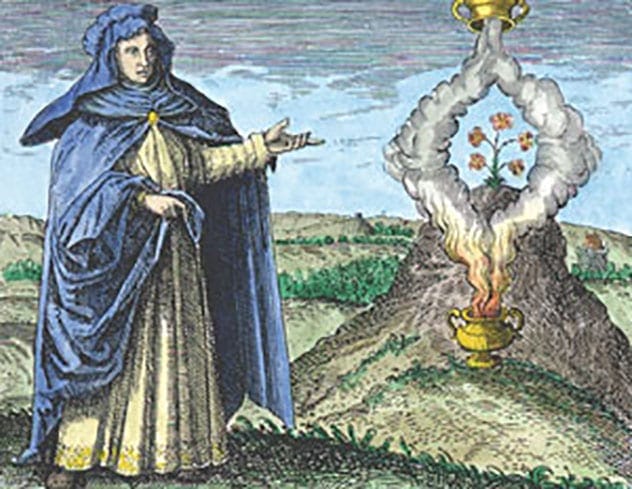
Maria Prophetissima, or Mary the Jewess, was an early alchemist in Egypt around the first century AD. Some consider her the founder of Western alchemy. Although her writings are lost, she’s often quoted in later texts, revealing her innovations.
Alchemy differs from chemistry, and many of Mary’s fragments are enigmatic: “One becomes two, two becomes three, and out of the third comes the one as the fourth.” Despite the mystery, some of her inventions are still in use.
Mary improved distillation vessels and invented the bain-marie, a water bath to control temperature, still used in cooking today.
The Mathematician
Alexandria in Egypt was a major intellectual hub. Scholars came from all over to study in its vast library. The city’s decline coincided with the death of Hypatia of Alexandria, a female scholar at a time when this was unusual.
Hypatia, a Pagan in an increasingly Christian society, taught and lectured publicly, wearing the traditional male scholar’s attire. She was renowned for her mathematical treatises, astronomical models, and commentaries.
Her association with Orestes, the Roman governor, led to her downfall. When Christian bishop Cyril turned against Orestes, Hypatia was blamed. A Christian mob destroyed Alexandria’s library and brutally murdered her.
The Assassin
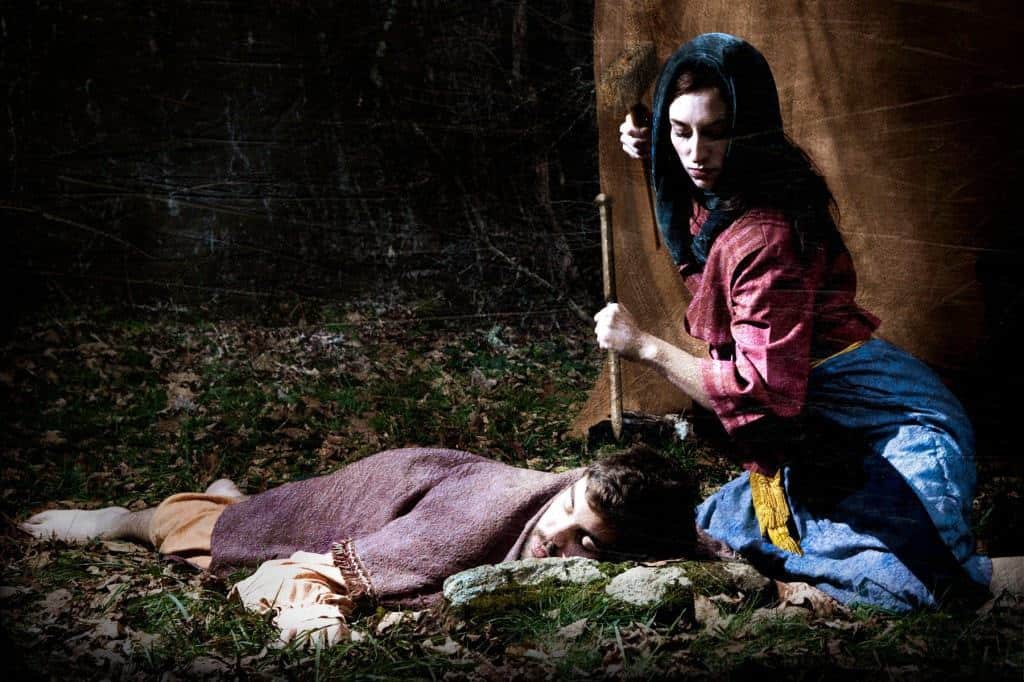
Jael, or Yael, from the Old Testament, is a controversial figure. Celebrated as a hero by the Jewish people, she also committed an act of treachery. During Canaanite oppression, their general Sisera fled to Jael’s camp after being defeated in battle.
Jael invited Sisera into her tent, assured him safety, covered him with a blanket, and gave him milk before he fell asleep. Then, sympathetic to the Jewish plight, she hammered a tent peg into his skull, killing him.
While Sisera’s murder violated hospitality laws, the Song of Deborah praises Jael: “Extolled above women be Jael, Extolled above women in the tent.”
The Diver
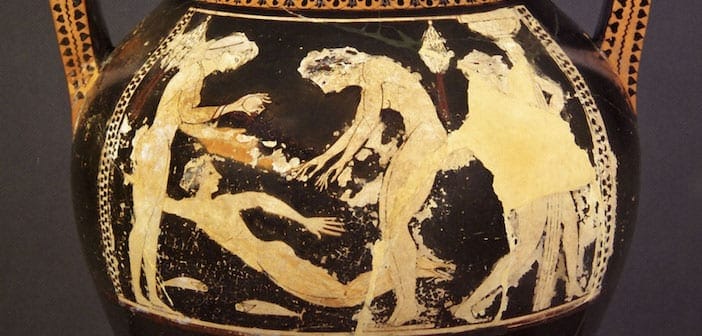
During Xerxes’ invasion of Greece, the Greek city-states seemed doomed. However, they achieved stunning victories, partly thanks to Hydna, a female diver.
Hydna, the daughter of swimming teacher Scyllis of Scione, inherited her father’s skills. Together, they were asked to sabotage the Persian fleet.
Swimming ten miles out to sea, they cut the fleet’s moorings and moved their anchors, causing the fleet to wreck. Statues of Hydna and her father were erected at Olympia to honor their bravery. Emperor Nero later stole Hydna’s statue to decorate Rome.
The Warrior Poet
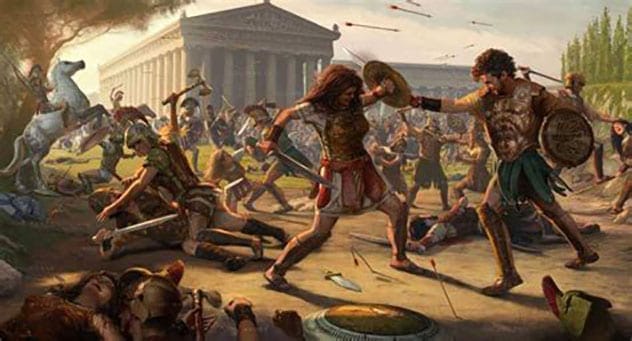
Telesilla, a Greek woman from Argos around 500 BC, was a sickly child. Seeking health, she consulted an oracle who advised her to dedicate herself to the Muses. Choosing poetry, she became renowned for her work.
Though only fragments of her poems survive, one story about her stands out. When the Spartans threatened Argos after the Argive men were defeated, Telesilla saved the city.
She armed the women and led them into battle, while slaves and old men manned the walls. The Spartans, surprised by the women’s courage, retreated, deeming victory without glory or defeat a great shame. A statue of Telesilla was erected, depicting her discarding her books for a helmet.
The Philosopher
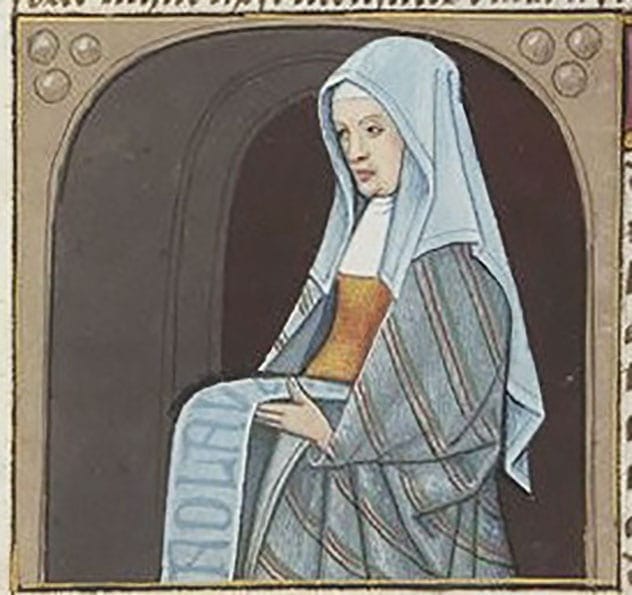
Ancient Athens was a difficult place for women. Respectable women were confined to their homes, and only hetairai, professional prostitutes known for their wit, had some freedom. One such woman was Leontion.
Epicurus, a renowned philosopher, welcomed everyone into his school, including slaves, the poor, and women. Leontion was a close associate of Epicurus, who addressed letters to her: “My dear Leontion, what transports of joy did I feel when I read your charming letter.”
Although her philosophy is largely lost, her harsh treatment is well-documented. Cicero criticized her for daring to challenge male philosophers, despite her elegant writing.
The Doctor
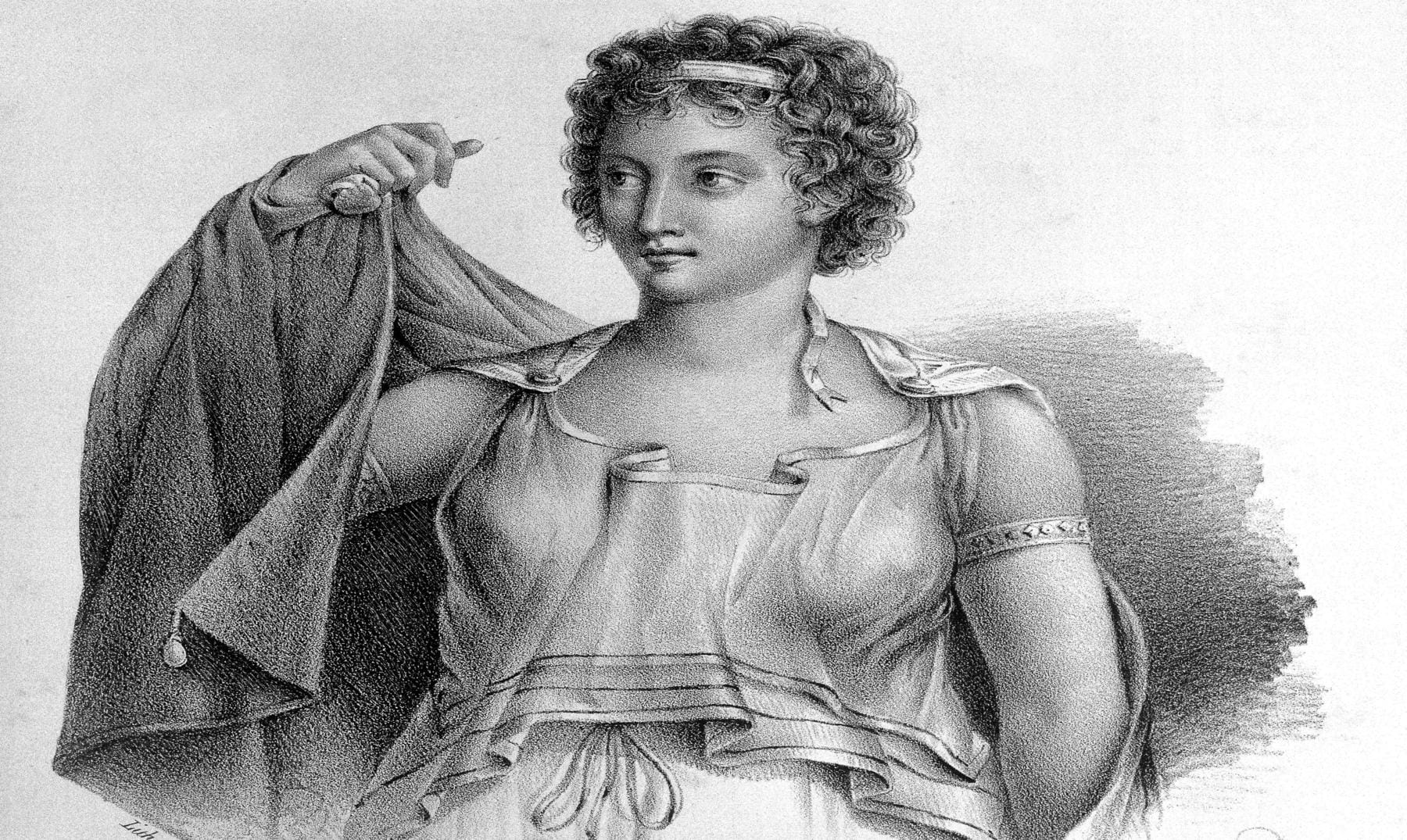
In ancient Athens, medicine was a male domain. Men, concerned with the legitimacy of their children, replaced experienced midwives with male doctors. However, women often preferred to give birth without male assistance. Agnodice found this unacceptable.
Agnodice disguised herself as a man and studied medicine in Alexandria. Returning to Athens, she continued her disguise to practice. To gain women’s trust, she revealed her true sex.
Soon, she became the preferred doctor for women, angering her male colleagues. They accused her of seducing her patients, leading to a trial. Agnodice defended herself by revealing her sex, dismissing the seduction charges. Though she faced new charges for practicing medicine as a woman, her patients rallied in court, demanding her release.
These ten women defied societal norms, leaving lasting impacts on history. From poetry and chemistry to philosophy and warfare, their contributions showcase the strength and resilience of women in the ancient world.
Learn more about these amazing women and share your thoughts in the comments below! #AncientWomen #HerStory


